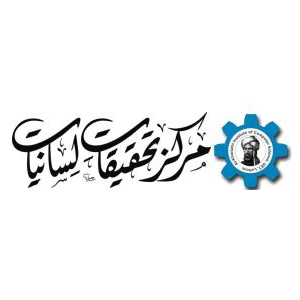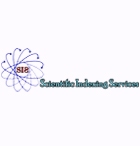Publication ethics and malpractice statement
Duties and Responsibilities of Editors:
In addition to many general duties, such as constantly improving the quality and integrity of the journal, striving to needs of authors and readers, encouraging academic debate, and others, the editors accept an obligation to apply best will and practice to cope with the following responsibilities:
- The editor is wholly responsible to establish/maintain the quality of the journal.
- He/ She has full authority to accept or reject any research paper keeping in view the publishing policy of the Journal or the standard of the topic/ references/ material/ presentation/ language of the submitted paper and professional demands as well.
- The editor ensures the process of blind peer review of every paper.
- The editor ensures the Plagiarism Check of every paper and strictly follows the HEC Plagiarism Policy regarding this matter.
- The editor is bound to follow the journal's policy without any institutional pressure.
- The editor would provide a corrigendum for any correction, clarification, and apologies when required.
- The editor may appoint Members of the Editorial Board/ Advisory Board and change them anytime.
- The editor ensures the smooth functioning of the journal and conducts the editorial board meeting on regular basis.
- The editor would disregard the discriminating factors, e.g. gender, race, ethnicity, religious belief, cultural sentiments, political affiliation, seniority, and/or institutional association of the author(s) while selecting articles for publication.
- The editor would try to promptly respond to the author (s) of the papers submitted for publishing, for any query.
- The editor will not edit any submitted paper which would have any conflict of interest. He/She is responsible to ask the reviewers/evaluators also for disclosing any conflict of interest regarding the submitted research paper to ensure impartiality.
- The editor ensures the confidentiality of the content of the manuscript before publishing at his and the reviewer's end.
Editorial Board:
Editorial board will be generated from recognized experts in the field. The editor will provide full names and affiliations of the members as well as updated contact information for the editorial office on the journal webpage.
Publication decisions:
The editor should be responsible for deciding which of the articles submitted to the journal should be published. The validation of the work in question and its importance to researchers and readers must always drive such decisions. The editor may be guided by the policies of the journal’s editorial board and constrained by such legal requirements, copyright infringement and plagiarism. The editor may confer with other editors or reviewers in making this decision.
Peer review process:
All of a journal’s content is subjected to peer-review. Articles submitted for possible publication are subjected to a double-blind, peer review process. Articles are first reviewed by editors. The editor may reject it out of hand either because it is not dealing with the subject matter for that journal or because it is manifestly of a low quality so that it cannot be considered at all. Articles that are found suitable for review are then sent to two experts in the field of the paper. Referees of a paper are unknown to each other. Referees are asked to classify the paper as publishable immediately, publishable with amendments and improvements, or not publishable. Referees’ evaluations usually include an explicit recommendation of what to do with the manuscript. Referees’ comments are then seen by the author.
Editors should be ready to justify any important deviation from the described process. Editors should not reverse decisions on publication unless serious problems are identified.
Editors should publish guidance to authors and reviewers on everything that is expected of them. This guidance should be regularly updated and will refer or link this code.
Fair play:
Editor should evaluate manuscripts for their intellectual content without considering race, gender, sexual orientation, religious belief, ethnic origin, citizenship, or political philosophy of the authors. Editors´ decision to accept or reject a paper for publication should be based only on the paper´s importance, originality and clarity, and the study´s relevance to the aim of the journal.
Confidentiality:
Editor and any editorial staff must not disclose any information about a submitted manuscript to anyone other than the corresponding author, reviewers, potential reviewers, other editorial advisers, and the publisher. Editors will ensure that material submitted remains confidential while under review.
Disclosure and conflicts of interest:
- A reviewer should not, for the purpose of his/her own research, use unpublished material
disclosed in a submitted manuscript, without the approval of the Editor. - The data included in the research paper is confidential and the reviewer shall not be
allowed to use if for his/her personal study, - A reviewer must declare any potentially conflicting interests (e.g. personal, financial,
intellectual, professional, political or religious). In such situation, s/he will be required to
follow the journal's policies. - A reviewer should be honest enough to declare conflicts of interest, if, the research paper
under review is the same as to his/her presently conducted study. - If the reviewer feels unqualified to separate his/her bias, s/he should immediately return
the manuscript to the Editor without review, and justify to him/her about the situation without the prior approval of the Editor. Then this should be brought in the Editor's knowledge.








